Introduction
Slip and fall accidents happen when someone slips, trips, or falls on someone else’s property. These accidents can occur anywhere, like in stores, offices, or homes. They are common and can lead to serious injuries. Some causes include wet floors, uneven surfaces, and poor lighting. If you get hurt in a slip and fall, it is important to know your rights and seek help.
Importance of Legal Representation
When you suffer from a slip and fall accident, hiring a personal injury lawyer is crucial. A lawyer can help you understand the legal process and get the compensation you deserve. They will gather evidence, talk to witnesses, and handle negotiations with insurance companies. With a personal injury lawyer, you have a better chance of winning your case and getting the support you need to recover.
What is a Slip and Fall Accident?
Definition and Common Causes
A slip and fall accident is when someone slips, trips, or falls due to a hazardous condition on someone else’s property. These accidents often occur because of:
- Wet or slippery floors
- Uneven surfaces or loose rugs
- Poor lighting in walkways
- Cluttered floors or obstacles
- Broken or missing handrails
Examples of Slip and Fall Scenarios
- Wet Floor in a Grocery Store: You slip on a spilled liquid that was not cleaned up or marked with a warning sign.
- Icy Sidewalk: You fall on an icy sidewalk that a property owner failed to salt or clear.
- Loose Carpet in an Office: You trip over a loose carpet edge in an office building.
- Dimly Lit Staircase: You fall down poorly lit stairs because you couldn’t see a broken step.
- Cluttered Walkway in a Mall: You trip over boxes left in the middle of a store aisle.
Common Injuries in Slip and Fall Accidents
Types of Injuries Sustained
- Bruises and Cuts: Falling can lead to bruises and cuts, which can be painful and may require medical attention.
- Sprains and Strains: Twisting an ankle or wrist during a fall can cause sprains and strains, leading to pain and swelling.
- Broken Bones: A slip and fall can result in broken bones, such as fractures in the arms, legs, or hips.
- Head Injuries: Hitting your head during a fall can cause concussions or more serious brain injuries.
- Back and Spinal Cord Injuries: Falling on your back can lead to injuries to the spine, which can be very serious.
Long-term Effects of Slip and Fall Injuries
- Chronic Pain: Injuries like sprains, strains, or broken bones can lead to long-term pain that affects daily life.
- Limited Mobility: Severe injuries, especially to the back or spine, can result in reduced mobility and difficulty moving around.
- Permanent Disability: Some injuries can cause permanent disability, making it hard to work or perform everyday activities.
- Emotional Impact: Long-term physical pain and mobility issues can lead to emotional problems like depression or anxiety.
- Medical Expenses: Ongoing medical treatment and physical therapy can be costly, adding financial stress to the physical and emotional burden.
Understanding Liability in Slip and Fall Cases
Premises Liability Explained
Premises liability means that property owners must keep their property safe for others. If someone gets hurt on their property, the owner might be responsible and the injured person can ask for money to cover their injuries. To get this money, the injured person has to show that the owner did not take proper care to keep the place safe.
Responsibility of Property Owners
Property owners have a responsibility to make sure their property is safe.
This includes:
- Regular Inspections: Checking for hazards like wet floors, uneven surfaces, or poor lighting.
- Prompt Repairs: Fixing any dangerous conditions as soon as possible.
- Clear Warnings: Placing warning signs around known hazards until they are fixed.
- Maintaining Safety Standards: Keeping walkways clear of obstacles and ensuring handrails are secure.
Role of a Personal Injury Lawyer in Slip and Fall Cases
Importance of Hiring a Specialized Lawyer
Hiring a personal injury lawyer who specializes in slip and fall cases is crucial. These lawyers have the experience and knowledge needed to handle the complexities of these cases. They understand the laws, know how to gather evidence, and can negotiate effectively with insurance companies. A specialized lawyer increases your chances of getting fair compensation.
How a Personal Injury Lawyer Can Help
- Legal Advice: They provide expert advice on your case, explaining your rights and options.
- Gathering Evidence: They collect important evidence, such as photos of the accident scene, medical records, and witness statements.
- Negotiating with Insurance Companies: They handle all communications with insurance companies to get you the best settlement.
- Representing You in Court: If necessary, they represent you in court, presenting your case to a judge or jury.
- Maximizing Compensation: They work to ensure you receive compensation for medical bills, lost wages, pain and suffering, and other damages.
Steps a Lawyer Takes in a Slip and Fall Case
- Initial Consultation: They meet with you to discuss the details of your accident and assess the viability of your case.
- Investigation: They conduct a thorough investigation, gathering evidence and identifying liable parties.
- Filing a Claim: They file a legal claim against the responsible parties, outlining the basis for your compensation.
- Negotiation: They negotiate with the insurance companies and the defendants to reach a fair settlement.
- Litigation: If a settlement cannot be reached, they take your case to court and advocate on your behalf.
- Settlement or Verdict: They work to secure a settlement or court verdict that compensates you for your injuries and losses.
How to Choose the Right Personal Injury Lawyer
Qualities to Look for in a Lawyer
- Experience: Look for a lawyer with experience handling slip and fall cases specifically.
- Reputation: Choose a lawyer with a good reputation and positive client reviews.
- Communication Skills: Your lawyer should communicate clearly and keep you informed about your case.
- Compassion: A good lawyer should be empathetic and understand the emotional and physical toll of your injuries.
- Dedication: Ensure the lawyer is dedicated and will prioritize your case.
Questions to Ask During the Initial Consultation
- Experience: How many slip and fall cases have you handled?
- Success Rate: What is your success rate with these types of cases?
- Case Management: Will you be handling my case personally or will it be passed to another lawyer or paralegal?
- Fees: What are your fees, and do you work on a contingency basis (only getting paid if you win)?
- Timeline: How long do you think my case will take to resolve?
- Strategy: What is your strategy for my case, and what are the potential outcomes?
Importance of Experience and Track Record
- Expertise in Slip and Fall Cases: Lawyers with experience in slip and fall cases know the specifics of these types of claims, including common defenses and strategies for success.
- Proven Success: A strong track record of winning similar cases shows the lawyer’s capability to achieve favorable outcomes.
- Knowledge of Local Laws: Experienced lawyers are familiar with local laws and court procedures, which can be advantageous for your case.
- Network of Experts: Seasoned lawyers often have a network of medical experts, investigators, and other professionals who can strengthen your case.
- Negotiation Skills: Lawyers with a history of successful cases have honed their negotiation skills, helping them secure better settlements for their clients.
The Legal Process for Slip and Fall Claims
Filing a Claim: Step-by-Step Guide
- Seek Medical Attention: Get medical care immediately after the accident to document your injuries.
- Report the Accident: Notify the property owner or manager about the slip and fall incident.
- Consult a Personal Injury Lawyer: Seek legal advice from a personal injury lawyer who is experienced in slip and fall cases.
- File a Claim: Your lawyer will help you file a claim with the property owner’s insurance company, outlining your injuries and damages.
- Complaint and Summons: If the insurance company denies your claim or offers an insufficient settlement, your lawyer may file a complaint and summons to start a lawsuit.
Gathering Evidence and Documentation
- Accident Report: Obtain a copy of the accident report filed with the property owner.
- Medical Records: Gather all medical records and bills related to your injuries.
- Photographs: Take photos of the accident scene, any hazards, and your injuries.
- Witness Statements: Collect statements from any witnesses who saw the accident.
- Surveillance Footage: Secure any available video footage from cameras that may have captured the incident.
Negotiating with Insurance Companies
- Demand Letter: Your lawyer will send a demand letter to the insurance company detailing your injuries, damages, and the compensation you seek.
- Negotiations: The insurance company will respond, and negotiations will begin. Your lawyer will handle all communications and negotiate on your behalf.
- Counteroffers: The insurance company may make counteroffers. Your lawyer will advise you on whether to accept or continue negotiating.
- Settlement Agreement: If both parties agree on a settlement amount, your lawyer will finalize the agreement, and you will receive compensation.
Preparing for Trial, if Necessary
- Discovery Phase: Both sides gather and exchange evidence, including depositions, interrogatories, and document requests.
- Pre-Trial Motions: Your lawyer may file motions to resolve certain issues before trial, such as motions to dismiss or for summary judgment.
- Trial Preparation: Your lawyer will prepare you and any witnesses for trial, organize evidence, and develop a trial strategy.
- Trial: If a settlement is not reached, the case goes to trial. Your lawyer will present your case to a judge or jury, arguing for the compensation you deserve.
- Verdict: The judge or jury will deliver a verdict. If you win, the court will award you damages. If you lose, your lawyer can advise on possible appeals.
Compensation in Slip and Fall Cases
Types of Damages You Can Claim
- Medical Expenses: This includes all medical costs related to the injury, such as hospital bills, doctor visits, surgery, physical therapy, and medications.
- Lost Wages: Compensation for the income you lost due to being unable to work while recovering from your injuries.
- Pain and Suffering: Damages for the physical pain and emotional distress caused by the injury.
- Loss of Earning Capacity: If the injury affects your ability to earn money in the future, you can claim compensation for this loss.
- Property Damage: If any personal property was damaged during the fall, such as a watch or phone, you can claim repair or replacement costs.
- Out-of-Pocket Expenses: Costs for transportation to medical appointments, hiring help for household chores, and other expenses directly related to the injury.
Factors Affecting the Value of Your Claim
- Severity of Injuries: More severe injuries typically result in higher compensation due to increased medical expenses and impact on quality of life.
- Impact on Daily Life: If the injury significantly affects your ability to perform daily activities or enjoy life, the compensation may be higher.
- Age and Health: Younger, healthier individuals might receive more compensation for lost future earning capacity compared to older individuals or those with pre-existing conditions.
- Degree of Fault: If you are found partially at fault for the accident, your compensation may be reduced based on the percentage of your fault.
- Insurance Policy Limits: The amount of available insurance coverage can limit the compensation you receive.
Calculating Medical Expenses, Lost Wages, and Pain and Suffering
- Medical Expenses:
- Add up all medical bills, including future medical care costs recommended by your doctor.
- Include expenses for hospital stays, surgeries, medications, physical therapy, and medical devices.
- Lost Wages:
- Calculate the total income you lost while recovering by adding up your missed paychecks.
- If you are unable to return to work or have reduced earning capacity, estimate your future lost income based on your salary and expected work years remaining.
- Pain and Suffering:
- Pain and suffering damages are more subjective and can vary widely.
- Some methods include using a multiplier of your total medical expenses (e.g., multiplying medical costs by 1.5 to 5) or a per diem approach, assigning a daily value to your suffering and multiplying it by the number of days you experienced pain and distress.
To ensure accurate calculations and to maximize your compensation, it is essential to work with a personal injury lawyer experienced in slip and fall cases. They can help gather the necessary documentation and provide expert guidance throughout the process.
Common Defenses in Slip and Fall Cases
Defense Strategies Used by Property Owners
- No Hazard Present: Property owners may argue that there was no hazardous condition present at the time of the accident.
- Open and Obvious Hazard: They might claim the hazard was obvious, and the injured person should have noticed and avoided it.
- Comparative Negligence: The owner could argue that the injured person was partially or fully responsible for the accident, such as by not paying attention or wearing inappropriate footwear.
- Lack of Notice: Owners may state they were not aware of the hazard and did not have enough time to fix it before the accident occurred.
- Contributory Negligence: In some jurisdictions, if the injured person is found to be even slightly at fault, they may be barred from recovering any compensation.
- Assumption of Risk: Property owners may argue that the injured person knew about the risk and chose to proceed anyway.
How a Lawyer Can Counter These Defenses
- Proving the Hazard: A lawyer can gather evidence, such as photos, videos, and witness statements, to prove the presence of a hazard.
- Demonstrating Hidden Hazards: They can show that the hazard was not obvious and that a reasonable person would not have noticed it.
- Comparative Negligence Arguments: Your lawyer can argue that the property owner had a greater responsibility to ensure safety and that your actions did not significantly contribute to the accident.
- Evidence of Notice: A lawyer can collect evidence, such as maintenance logs and employee testimonies, to show that the property owner knew or should have known about the hazard.
- Countering Contributory Negligence: In jurisdictions with contributory negligence laws, your lawyer can argue that the property owner’s negligence was the primary cause of the accident.
- Refuting Assumption of Risk: Your lawyer can demonstrate that you were not aware of the hazard and could not have reasonably avoided it.
By effectively countering these defenses, a personal injury lawyer can help ensure that you receive the compensation you deserve for your slip and fall injuries.
Tips for Preventing Slip and Fall Accidents
Safety Measures for Property Owners
- Regular Inspections: Frequently check the property for potential hazards.
- Maintain Clean Floors: Keep floors clean and dry. Promptly clean up any spills.
- Repair Hazards: Fix any loose tiles, frayed carpets, or uneven flooring.
- Adequate Lighting: Ensure all areas, especially staircases and walkways, are well-lit.
- Handrails and Guardrails: Install and maintain sturdy handrails on stairs and guardrails in elevated areas.
- Clear Walkways: Remove clutter and obstacles from walkways.
- Use Non-Slip Mats: Place non-slip mats in areas prone to getting wet, such as entrances and bathrooms.
- Post Warning Signs: Clearly mark any temporary hazards, such as wet floors or construction areas.
- Employee Training: Train employees to recognize and address potential slip and fall hazards.
- Weather Precautions: During bad weather, ensure snow and ice are promptly removed, and use salt or sand to improve traction on sidewalks and parking lots.
What to Do Immediately After a Slip and Fall Accident
- Seek Medical Attention: Get medical help right away, even if you think you are not seriously injured. Some injuries may not be obvious at first.
- Report the Accident: Inform the property owner or manager about the incident and ensure they create an accident report.
- Document the Scene: Take photos of the location where you fell, including any hazards that caused the accident.
- Gather Witness Information: Collect contact information from anyone who saw the accident.
- Preserve Evidence: Keep any clothing or shoes you were wearing at the time of the fall, as they may be relevant to your case.
- Write Down Details: Record details of the incident, including the time, date, and exact location, as well as the circumstances leading up to the fall.
- Consult a Personal Injury Lawyer: Seek legal advice from a personal injury lawyer experienced in slip and fall cases to understand your rights and the next steps to take.
By following these tips, property owners can help prevent slip and fall accidents, and individuals can protect their rights and health if an accident occurs.
Case Studies and Success Stories
Real-life Examples of Successful Slip and Fall Claims
- Grocery Store Slip and Fall
- Case: A woman slipped on a wet floor in a grocery store. There were no warning signs indicating the hazard.
- Outcome: The woman hired a personal injury lawyer and sued the store for negligence. The court awarded her $100,000 in damages for medical bills, lost wages, and pain and suffering.
- Lesson: Proper signage and prompt cleanup of spills are crucial in preventing slip and fall accidents.
- Office Building Staircase Accident
- Case: A man fell down a poorly lit staircase in an office building, suffering a broken leg.
- Outcome: The man’s lawyer proved that the building owner failed to maintain adequate lighting and safety standards. He received a $75,000 settlement.
- Lesson: Ensuring well-lit and safe staircases is essential for property owners to avoid liability.
- Restaurant Slip and Fall
- Case: A diner slipped on a spilled drink in a restaurant, resulting in a severe back injury.
- Outcome: The restaurant was found liable due to staff negligence in not cleaning up the spill. The injured person was awarded $120,000.
- Lesson: Timely maintenance and employee training are vital in preventing slip and fall accidents in busy environments.
Lessons Learned from Past Cases
- Prompt Hazard Management: Immediate action to identify and address hazards can prevent accidents and potential lawsuits.
- Proper Signage: Clear and visible warning signs for wet floors, uneven surfaces, and other temporary hazards are crucial in protecting visitors.
- Regular Maintenance: Routine inspections and maintenance of property features like flooring, handrails, and lighting can reduce the risk of slip and fall incidents.
- Employee Training: Ensuring that employees are trained to recognize and promptly address hazards can significantly lower the chances of accidents.
- Legal Preparedness: Understanding liability and having a plan in place for responding to accidents can help property owners manage and mitigate risks effectively.
These case studies highlight the importance of proactive measures and the role of a personal injury lawyer in securing fair compensation for slip and fall victims.
Conclusion
In conclusion, slip and fall accidents can lead to serious injuries and significant challenges. Effective legal representation is crucial for navigating the complexities of these cases, from proving liability to securing fair compensation for medical expenses, lost wages, and pain and suffering. A personal injury lawyer brings expertise in handling these claims, countering common defenses, and guiding you through the legal process, ensuring that your rights are protected and that you receive the justice you deserve.
FAQs
Q. What should I do immediately after a slip and fall accident?
Seek medical attention, report the accident to the property owner or manager, document the scene with photos, gather witness information, preserve any evidence, and consult a personal injury lawyer.
Q. How long do I have to file a slip and fall claim?
The statute of limitations for filing a slip and fall claim varies by state, typically ranging from one to three years from the date of the accident. It’s important to consult a lawyer promptly to ensure your claim is filed on time.
Q. What kind of compensation can I receive for a slip and fall accident?
You may be entitled to compensation for medical expenses, lost wages, pain and suffering, loss of earning capacity, property damage, and out-of-pocket expenses related to the injury.
Q. How do I prove that the property owner was at fault for my slip and fall accident?
Evidence such as photos of the hazard, witness statements, accident reports, and maintenance records can help prove the property owner’s negligence Your lawyer will help gather and present this evidence.
Q. What if I was partially at fault for the slip and fall accident?
Comparative negligence laws allow you to still recover compensation even if you were partially at fault. However, your compensation may be reduced based on your percentage of fault.
Q. How long does it take to resolve a slip and fall claim?
The timeline for resolving a claim varies depending on the complexity of the case, the severity of injuries, and whether a settlement is reached or the case goes to trial. It can take anywhere from a few months to several years.
Q. Do I need a lawyer for a slip and fall claim?
While it is possible to file a claim without a lawyer, having a personal injury lawyer can significantly increase your chances of receiving fair compensation. A lawyer can guide you through the legal process, negotiate with insurance companies, and represent you in court if needed.
Q. How much does it cost to hire a personal injury lawyer for a slip and fall case?
Most personal injury lawyers work on a contingency fee basis, meaning they only get paid if you win your case. The fee is usually a percentage of the settlement or court award, typically around 25-40%.
Q. What if the property owner claims they were unaware of the hazard?
Property owners are responsible for regularly inspecting and maintaining their property. Your lawyer can argue that the owner should have known about the hazard and taken steps to address it.
Q. Can I still file a claim if the slip and fall happened on government property?
Yes, you can file a claim if the accident occurred on government property, but the process may be more complex and subject to different rules and shorter deadlines. Consult a lawyer experienced in handling claims against government entities.
Dive into the world of Personal Injury with Easy Injury Claims. Visit our website to uncover endless inspiration!



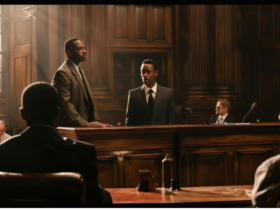
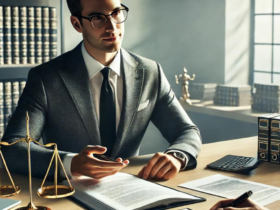
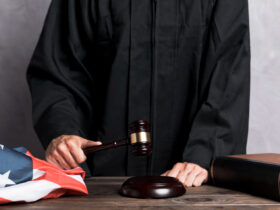
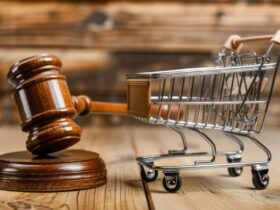
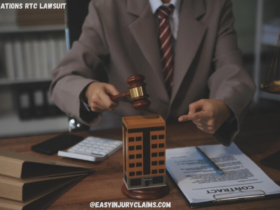
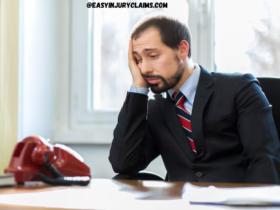

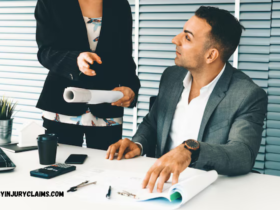
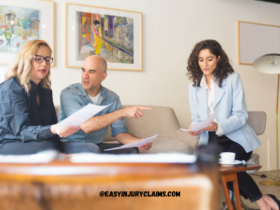
Got a Questions?
Find us on Socials or Contact us and we’ll get back to you as soon as possible.